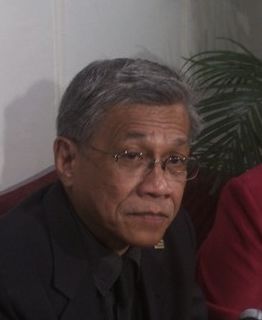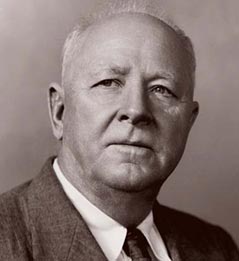A Quote by Liz Truss
I want Britain to lead the world in food and farming and to do that we need enough productive agricultural land.
Related Quotes
The people who benefit from this state of affairs have been at pains to convince us that the agricultural practices and policies that have almost annihilated the farming population have greatly benefited the population of food consumers. But more and more consumers are now becoming aware that our supposed abundance of cheap and healthful food is to a considerable extent illusory.
In my opinion, if 100% of the people were farming it would be ideal. If each person were given one quarter-acre, that is 1 1/4 acres to a family of five, that would be more than enough land to support the family for the whole year. If natural farming were practiced, a farmer would also have plenty of time for leisure and social activities within the village community. I think this is the most direct path toward making this country a happy, pleasant land.
We need to realize that these industrial methods of farming have gotten us used to cheap food. The corollary of cheap food is low wages. What we need to do in an era when the price of food is going up is pay better wages. A living wage is an absolutely integral part of a modern food system, because you can't expect people to eat properly and eat in a sustainable way if you pay them nothing. In fact, it's cheap food that subsidized the exploitation of American workers for a very long time, and that's always been an aim of cheap food.
Sheep farming is heavily subsidized in Great Britain. Without the subsidies, the green grazing in the valley of the River Exe would be gone. The handsome agricultural landscape of which the British are so proud, carefully husbanded since Boudicca's day, would be replaced by natural growth. The most likely growth is real-estate developments.
We are living as if we had three planets' worth of resources to live with rather than just one. We need to cut by about two-thirds our ecological footprint. For that we need one planet farming as well as one planet living - one planet farming which minimises the impact on the environment of food production and consumption, and which maximises its contribution to renewal of the natural environment
[My father] did get enough money to buy mules. We didn't have tractors, but he bought mules, wagons, cultivators and some farming equipment. As soon as he bought that and decided to rent some land, because it was always better if you rent the land, but as soon as he got the mules and wagons and everything, somebody went to our trough - a white man who didn't live very far from us - and he fed the mules Paris Green, put it in their food and it killed the mules and our cows.


































